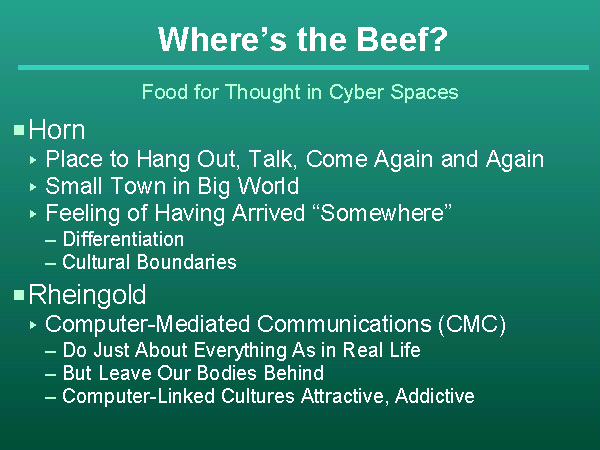





 Notes:
Notes:
Rheingold discusses the concept of computer-mediated communications (CMC) and defines virtual communities as "social aggregations that emerge from the Net when enough people carry on those public discussions long enough, with sufficient human feeling, to form webs of personal relationships in cyberspace."
He notes: "People in virtual communities do just about everything people do in real life, but we leave our bodies behind. You can't kiss anybody and nobody can punch you in the nose, but a lot can happen within those boundaries. To the millions who have been drawn into it, the richness and vitality of computer-linked cultures is attractive, even addictive."
Some social gathering places are derisively called meat markets. The title of this slide -- Where's the Beef? -- is a famous advertising slogan referencing an alleged lack of substance in competitive products. The primary substance of interactive cyberspaces is typewritten words. Some utopians decry the importance of physical appearance in social interactions. Unless video capture features are incorporated into virtual communities, that artifact of physical relationships is eliminated. As Rheingold notes, when we enter virtual communities, we leave our bodies behind. Virtual communities may comprise great substance. However, the substance they contain is food for thought ... rather than for carnivores.
Rheingold notes: "Because we cannot see one another in cyberspace, gender, age, national origin, and physical appearance are not apparent unless a person wants to make such characteristics public. People whose physical handicaps make it difficult to form new friendships find that virtual communities treat them as they always wanted to be treated--as thinkers and transmitters of ideas and feeling beings, not carnal vessels with a certain appearance and way of walking and talking (or not walking and not talking)."















